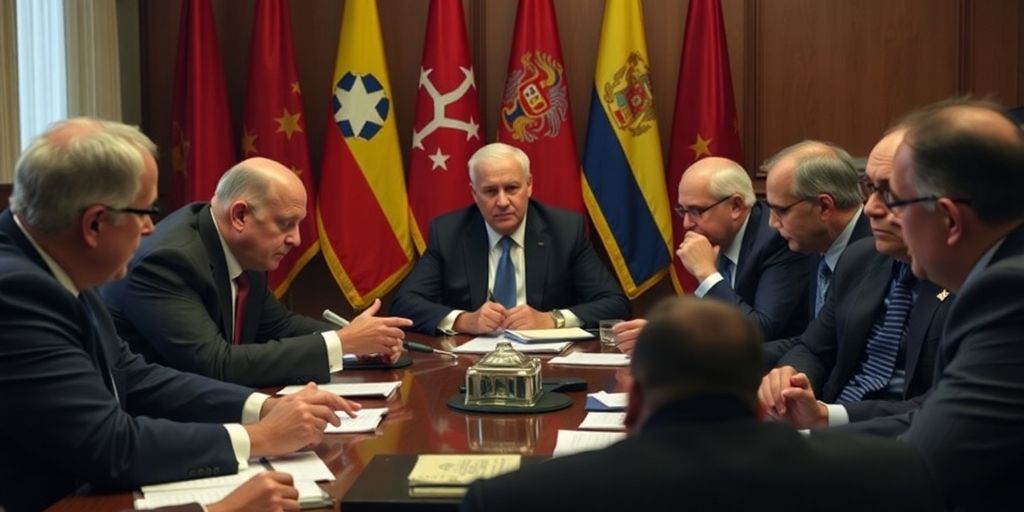Bosnia and Herzegovina is currently facing a significant political crisis as Milorad Dodik, the president of the Serb-majority entity Republika Srpska, defies a court ruling that sentenced him to prison for disobeying judicial orders. This defiance has sparked fears of renewed ethnic tensions and instability in the region.
Key Takeaways
- Milorad Dodik sentenced to one year in prison and banned from public office for six years.
- Dodik enacts laws prohibiting state judiciary and police from operating in Republika Srpska.
- International community expresses deep concern over rising tensions and potential violence.
Background of the Crisis
The political landscape in Bosnia has been increasingly unstable since the 1995 Dayton Accords, which aimed to maintain peace among the country’s three main ethnic groups: Bosniaks, Serbs, and Croats. Recently, tensions have escalated following Dodik’s conviction for defying the orders of the international peace envoy, Christian Schmidt. The court’s ruling not only sentenced him to prison but also barred him from holding public office for six years.
Dodik’s Defiance and Legislative Actions
In response to his conviction, Dodik’s government has enacted controversial laws that effectively ban the operation of state-level security and judicial institutions within Republika Srpska. Key legislative actions include:
- Laws passed to prohibit state police and judiciary from operating in Republika Srpska.
- Claims by Dodik that these laws are necessary for the protection of the Serb population.
Dodik has publicly rejected the legitimacy of the court and vowed to continue his political activities, framing the verdict as a politically motivated attack against Serbs. His actions have drawn sharp criticism from both domestic and international observers, with the U.S. and EU condemning his separatist rhetoric.
International Response
The international community has reacted with alarm to Dodik’s defiance. NATO Secretary General Mark Rutte reaffirmed support for Bosnia’s territorial integrity during a recent visit, emphasizing that any actions undermining the Dayton Peace Agreement are unacceptable. The European Union peacekeeping force, EUFOR, has also increased troop presence in the country to deter potential violence.
Statements from key figures include:
- Denis Bećirović, a Bosniak member of the presidency, has filed an appeal against Dodik’s new laws, asserting they violate the constitution.
- Aleksandar Vučić, President of Serbia, expressed support for Dodik, calling the court’s verdict "shameful" and a political attack.
The Path Forward
As tensions continue to rise, the future of Bosnia remains uncertain. Dodik’s refusal to recognize the court’s authority and his push for further autonomy for Republika Srpska could lead to a resurgence of ethnic tensions reminiscent of the 1990s conflict. The situation calls for urgent dialogue among Bosnia’s political leaders and the international community to prevent a potential crisis.
The coming weeks will be critical in determining whether Bosnia can navigate this political turmoil without descending into violence once again. The international community’s response and the actions of local leaders will play a crucial role in shaping the future of this fragile state.
Sources
- Can Bosnia and Herzegovina “survive” after the top court ruling against Milorad Dodik?, European Western Balkans.
- Bosnia’s Political Crisis Deepens as Dodik Defies Court Rulings, BalkanEU.
- Explaining a legal and constitutional crisis in Bosnia, The Jerusalem Post.
- NATO chief vows ‘unwavering’ support for Bosnia’s integrity after Serb separatist actions, AP News.
- What’s at stake for Bosnia and Herzegovina as Milorad Dodik faces a political reckoning?, Atlantic Council.






